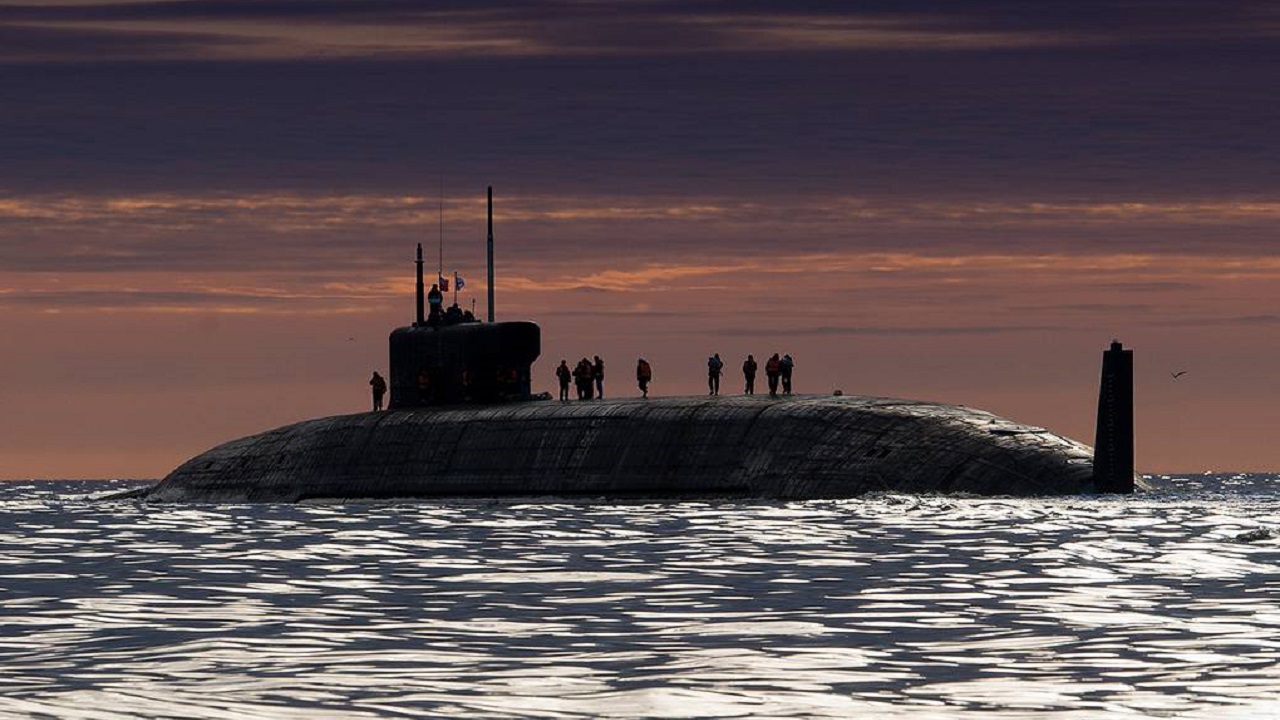After leaving a global treaty banning nuclear weapons tests, Russia this week successfully tested a submarine-launched intercontinental ballistic missile. The Borei-class ballistic missile submarine Imperator Alexander III launched an RSM-56 missile from a position in the White Sea.
The Bulava missile first entered into service in June 2018. It carries six warheads, according to the Federation of American Scientists. The missile is also known by the NATO reporting name SS-NX-30 Grau.
The Bulava Missile Described
The Bulava has three stages. The first and second stages use solid fuel, while the third stage uses liquid fuel. This allows for high maneuverability during warhead separation. Russia claims the missile is invulnerable to any existing anti-ballistic missile system, because it can maneuver during the boost phase of its trajectory.
“As part of the final stage of the state testing program, the new nuclear-powered strategic missile submarine Emperor Alexander the Third successfully launched the Bulava sea-based intercontinental ballistic missile from the White Sea across the Kura battlefield on the Kamchatka Peninsula,” a statement by the Russian Defense Ministry said.
The Defense Ministry said the submarine launched the missiles while it was submerged, adding that the dummy warheads accurately struck their targets.
The Russian Navy moved its newest ballistic missile submarine, the Generalissimus Suvorov, to the Pacific on Oct. 16. It arrived at the Vilyuchinsk submarine force base in Kamchatka.
Russia currently has three operational Borei-class submarines, its first new subs since the end of the Cold War.
Ukraine: Missile Tests Failed
Ukrainian sources say the Bulava missile test failed. Kyiv noted that an RS-24 Yars silo-based ICBM was also tested.
“Moscow also has serious problems with the silo-based heavy ICBM RS-28 Sarmat – this is one of the key projects in the process of modernizing Russia’s strategic nuclear forces declared by the aggressor,” Ukraine’s Main Intelligence Directorate noted.
Russian Saber-Rattling Continues
Russia’s nuclear belligerence has picked up since the invasion of Ukraine last year. A Russian propaganda video released recently showed Russian nuclear weapons annihilating major American cities including New York and San Francisco.
“Russia’s action will only serve to set back confidence in the international arms control regime,” U.S. Secretary of State Antony Blinken said in a statement.
Russia claims its de-ratification of the Comprehensive Nuclear Test Ban Treaty brings it in line with the U.S., which signed the treaty but never ratified it. Neither the U.S. nor Russia has carried out a nuclear test since 1992. The last time Moscow detonated a nuclear weapon was in 1990, when the Soviet Union still existed.
India, Pakistan, and North Korea are the only nations to conduct nuclear tests since the end of the Cold War.
Nikolai Petrushev, the head of Russia’s National Security Council who has been mentioned as a likely successor to Russian President Vladimir Putin, claimed on Saturday that Russia has more nuclear missiles than its competitors for the first time in history. He also claimed that Russia has many new nuclear capabilities that are unmatched by the U.S. or its allies.
The Biden administration made ratification of the New START Treaty without any preconditions one of his first acts as president. Putin pocketed the concession, taking Biden’s failure to hold ground taken by the Trump administration as a sign of weakness. Russia’s nuclear posture is another victim of the administration’s inability to use deterrence as part of its diplomatic strategy.
John Rossomando is a defense and counterterrorism analyst and served as Senior Analyst for Counterterrorism at The Investigative Project on Terrorism for eight years. His work has been featured in numerous publications such as The American Thinker, The National Interest, National Review Online, Daily Wire, Red Alert Politics, CNSNews.com, The Daily Caller, Human Events, Newsmax, The American Spectator, TownHall.com, and Crisis Magazine. He also served as senior managing editor of The Bulletin, a 100,000-circulation daily newspaper in Philadelphia, and received the Pennsylvania Associated Press Managing Editors first-place award for his reporting.

